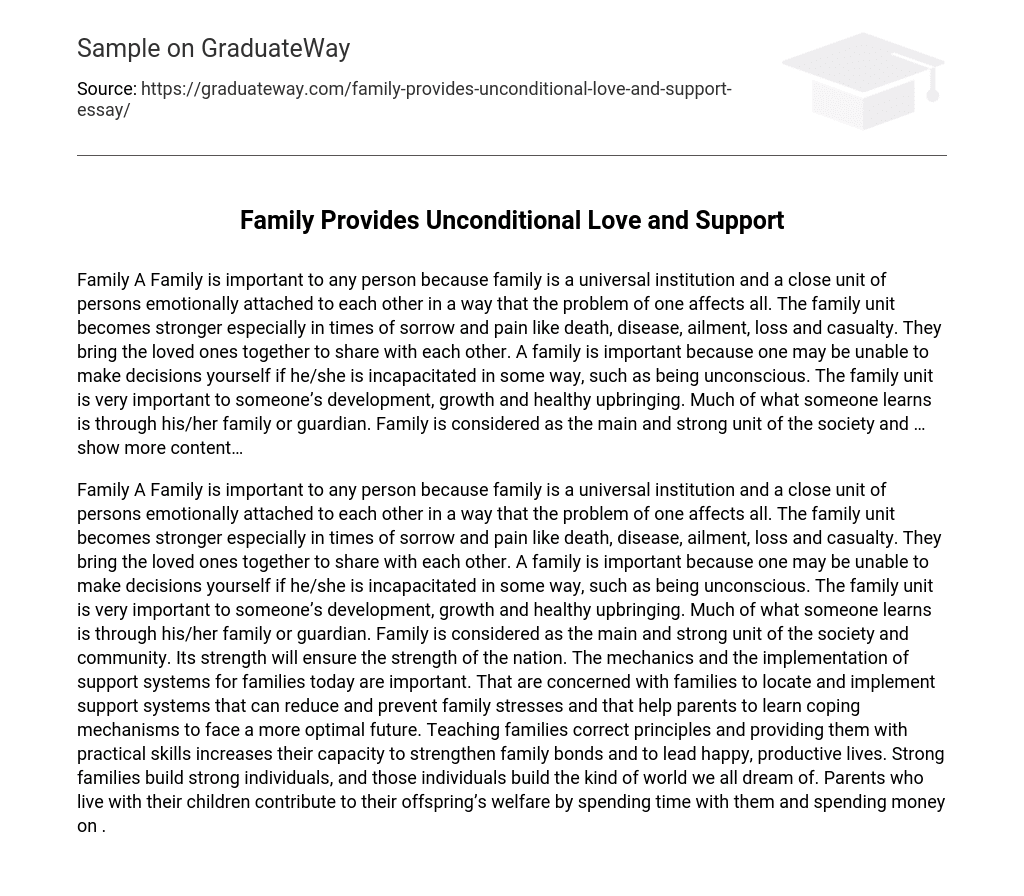The family plays a crucial role in the lives of individuals, fostering emotional connections across cultures. During challenging times like death, illness, sorrow, and disasters, the family provides support and brings loved ones together for comfort. Additionally, when someone is unable to make decisions due to incapacity, the family steps in as decision-makers. Moreover, the family plays a significant part in personal growth, maturity, and a well-rounded upbringing by offering guidance and imparting valuable lessons. Society acknowledges the family as an indispensable and resilient unit.
The family is an essential aspect of an individual’s life, serving as a universal institution that nurtures close emotional connections among its members. Particularly during challenging times like death, illness, loss, or tragedy, the family unit becomes even more tightly knit and provides support and solace to one another. Families play a significant role in decision-making when someone is incapacitated. Additionally, an individual’s upbringing and personal growth heavily rely on their family or guardian who plays a critical role in their education and development.
It is important to emphasize that families are the foundation of society and community. Their strength greatly contributes to the stability and resilience of nations. Therefore, establishing support systems that assist families in reducing stress while equipping parents with effective coping mechanisms is crucial for a brighter future.
By instilling proper values and imparting practical skills, families can enhance their ability to form strong bonds and lead fulfilling lives. Ultimately, strong families contribute to achieving our collective aspiration for a harmonious world. The positive impact parents have on their children’s well-being can be observed through the time and resources they invest in them.





